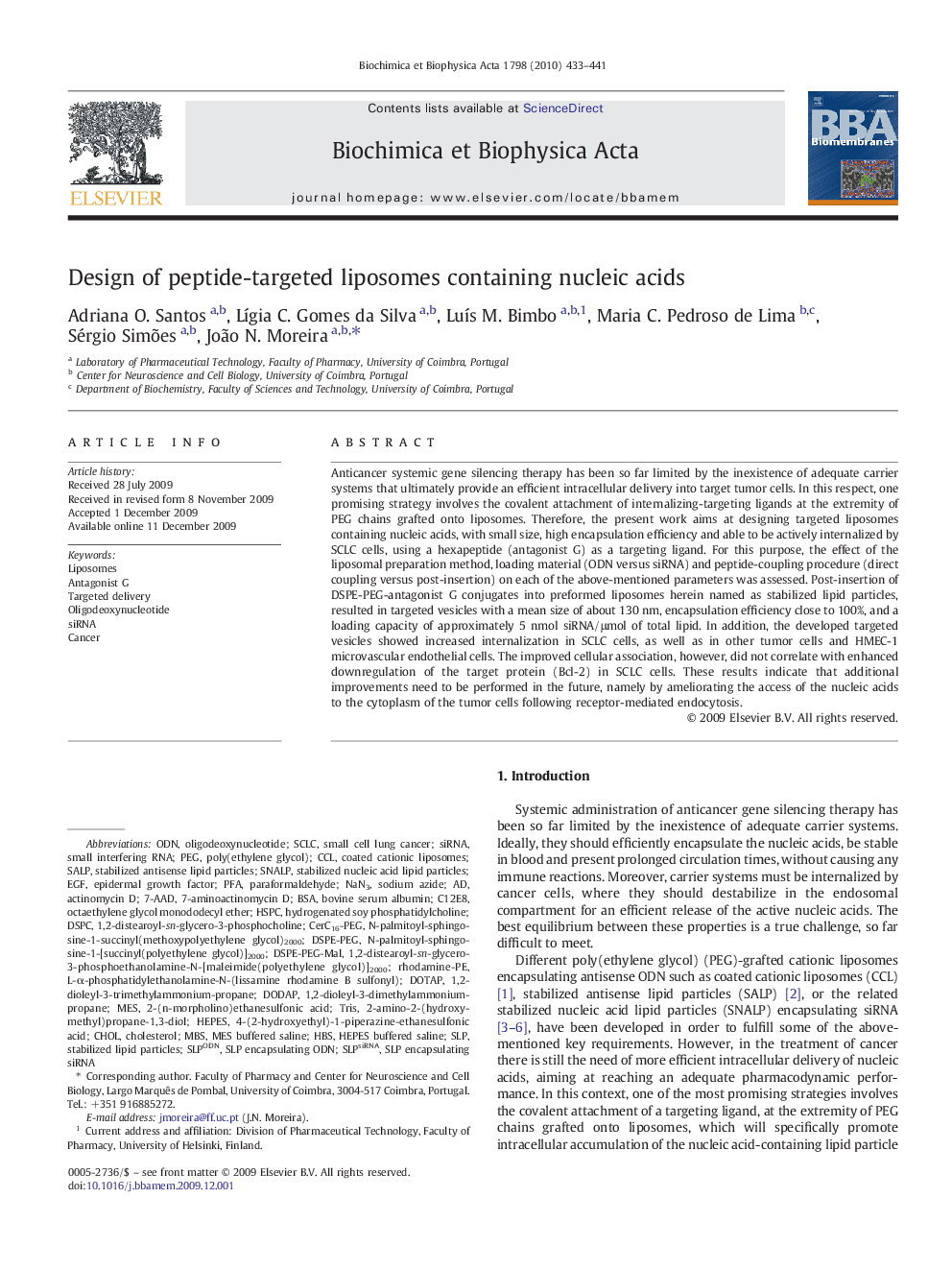| Article ID | Journal | Published Year | Pages | File Type |
|---|---|---|---|---|
| 1944752 | Biochimica et Biophysica Acta (BBA) - Biomembranes | 2010 | 9 Pages |
Anticancer systemic gene silencing therapy has been so far limited by the inexistence of adequate carrier systems that ultimately provide an efficient intracellular delivery into target tumor cells. In this respect, one promising strategy involves the covalent attachment of internalizing-targeting ligands at the extremity of PEG chains grafted onto liposomes. Therefore, the present work aims at designing targeted liposomes containing nucleic acids, with small size, high encapsulation efficiency and able to be actively internalized by SCLC cells, using a hexapeptide (antagonist G) as a targeting ligand. For this purpose, the effect of the liposomal preparation method, loading material (ODN versus siRNA) and peptide-coupling procedure (direct coupling versus post-insertion) on each of the above-mentioned parameters was assessed. Post-insertion of DSPE-PEG-antagonist G conjugates into preformed liposomes herein named as stabilized lipid particles, resulted in targeted vesicles with a mean size of about 130 nm, encapsulation efficiency close to 100%, and a loading capacity of approximately 5 nmol siRNA/μmol of total lipid. In addition, the developed targeted vesicles showed increased internalization in SCLC cells, as well as in other tumor cells and HMEC-1 microvascular endothelial cells. The improved cellular association, however, did not correlate with enhanced downregulation of the target protein (Bcl-2) in SCLC cells. These results indicate that additional improvements need to be performed in the future, namely by ameliorating the access of the nucleic acids to the cytoplasm of the tumor cells following receptor-mediated endocytosis.
